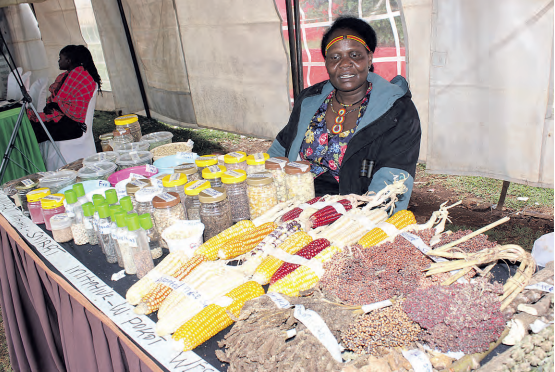
Farmers in the Central region have been urged to revert to traditional foods to reduce non-communicable diseases.
This comes a few days after the High Court dismissed several petitions challenging the lifting of the ban on genetically modified foods.
In 2022, the Cabinet lifted a 10- year ban on GMOs, sparking concerns over their safety to consumers and the environment.
The Biodiversity and Bio-safety Association of Kenya, an umbrella body representing 68 member organisations that create awareness on a safe environment, organised a traditional seeds festival in Nyeri town to create awareness on their importance.
The festival saw more than 40 organisations pitch camp at the Whisper Grounds to showcase agro-ecological practices and traditional seeds.
“We are teaching farmers how to prepare and preserve indigenous foods, the major role they can play in stemming chronic illnesses that have been soaring,” Biba Kenya coordinator Anne Maina said.
Biba Kenya has been discouraging the use of GMOs in the country and was one of the petitioners in the case thrown out by court last week.
Justice Lawrence Mugambi in his ruling said the Environment and Land Court had dealt with the matter last year and had ruled that the government had put in place safety measures to address concerns.
But Maina insisted that GMOs are only beneficial to manufacturers and have minimal benefits to consumers.
“We are concerned that manufacturing companies will control food production and therefore inhibit food sovereignty of our farmers. This is why we have started going to the grassroots to inform farmers why they need to embrace traditional foods and reduce their exposure to GMOs.”
Maina said most families have a limited consumption of vegetables and that their varieties are also few, unlike in other parts of the country where traditional vegetables are widely consumed.
She said most families have processed wheat and maize flour as their staple food, further compromising their health.
The festival saw farmers trained on the various varieties of grains that have high nutritional value and are more resilient to climate change.
“If we embrace traditional grains
such as finger millet, sorghum and
other indigenous crops, we can
cushion farmers from diseases and
food insecurity,” she said.













